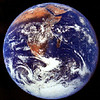
Chris Mooney offers his perspective on the recent ABC special about UFOs and wonders what it means to listen to "both sides."
The Pancake People, or, "The Gods Are Pounding My Head" (Edge)
Playright Richard Foreman observes how how people today are self-evolving under the pressure of information overload and the technology of the "instantly available," causing individuals to be spread wide and thin.
Declaring Biowar on Cancer (Technology Review)
Viruses may be a mighty new weapon the struggle to defeat cancer.
Against Nature: Why Nature Should Have No Say on Human Sexuality (Butterflies & Wheels)
In debates about sexuality, ‘nature’ is invariably brought into the discussion, and usually all the participants involved will try to claim that nature supports their position. Why? What if nature isn’t our best guide at all? We live most of our lives in a constant process of negating the base realities of nature, yet when it comes to sex we suddenly think nature has all the answers. This is illogical and regressive. We should no longer look to nature for answers about human sexuality; in fact, it should have no say on the matter at all.
A Brave New Branding (Utne)
The emergence of neuromarketing and the resultant ethical debate.
What is Richard Posner So Afraid Of? (Reason)
Ronald Bailey discusses risks, prevention and costs and wonders if the "sky is falling" mentality is too costly.
Revenge of the Wage-Slave (Guardian)
HG Wells's funniest book, Kipps, a satire on English class, drew on his own humble background and his experience as a shop assistant, writes David Lodge. The novel, which found an unlikely champion in Henry James, also reflected Wells's flirtation with Fabian socialism
In Hunting, Tech Pushes Envelope of What's Ethical (Technology Review)
Remote controlled hunting, which allows people to shoot animals using a video camera and Internet connection, has created an uproar.
Millions of Babies' Lives Could Be Saved (Nature)
It wouldn't cost much to dramatically reduce infant deaths in poor countries. Simple, inexpensive treatments could prevent the deaths of three million babies every year, doctors and child advocates have announced.
Radio Pulses Could Signal New Class of Astronomical Object (SciAm)
A survey of our galaxy's center has turned up evidence of what may be a new class of astronomical object. According to results published in the journal Nature, scientists have detected an unusual burst of radio waves emanating from near the galactic center with characteristics that are unlike those of previously detected radio bursts.

No comments:
Post a Comment